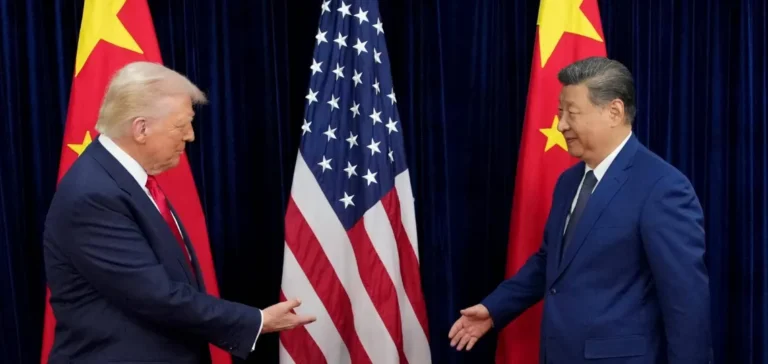United States President Donald Trump has announced an immediate reduction in tariffs on certain imports from China related to the fentanyl crisis, lowering the rate from 20% to 10%. The measure was decided following a summit with Chinese President Xi Jinping held in Busan, South Korea. The declared objective is to ease trade tensions rooted in the dispute over fentanyl trafficking, which has been classified as a national emergency by the American administration.
Trump stated that the cut followed a verbal commitment from his Chinese counterpart, claiming that China would begin “buying very large quantities of soybeans and other products” from the US. The American president clarified that the reduced rate would take effect “immediately”, without detailing specific regulatory countermeasures at this stage.
Pressure on US natural gas exports
The surcharges imposed by Washington earlier this year triggered retaliatory measures from Beijing. In response to the initial 10% tariffs introduced by the US in February, later raised to 20% in March, China implemented 15% duties on US liquefied natural gas (LNG) and coal, and an additional 10% on crude oil and agricultural equipment.
Since February, Chinese imports of US LNG have been suspended, a halt confirmed by Chinese customs data and maritime flows. If the US measure leads to a reciprocal move from China, it could reopen access to the Chinese market for US LNG, which is currently subject to a combined 25% tariff.
Expected consequences on energy trade
Market operators are closely watching the possibility of reduced Chinese duties on US fossil fuel imports. Several sources indicate that regulatory adjustments could be considered if Beijing decides to ease its stance on LNG imports. This development would restore competitive access for US exporters, particularly ahead of the winter season in Asia.
China remains one of the world’s largest LNG buyers, and a tariff reduction could revive contracts frozen for eight months. The tariff dispute had forced several US cargoes to be rerouted to Europe or Latin America, temporarily reshaping gas export routes.
Prospects for regulatory normalisation
According to industry representatives, bilateral regulatory coordination may begin in the coming weeks, focused on revising tariffs applied to energy products. However, no official statement from Beijing has yet confirmed a policy shift.
Industry stakeholders await clarification from Chinese authorities regarding future import conditions for US LNG. Meanwhile, negotiations over other tariff-affected sectors, such as agriculture and industrial machinery, are also expected to undergo review.






















